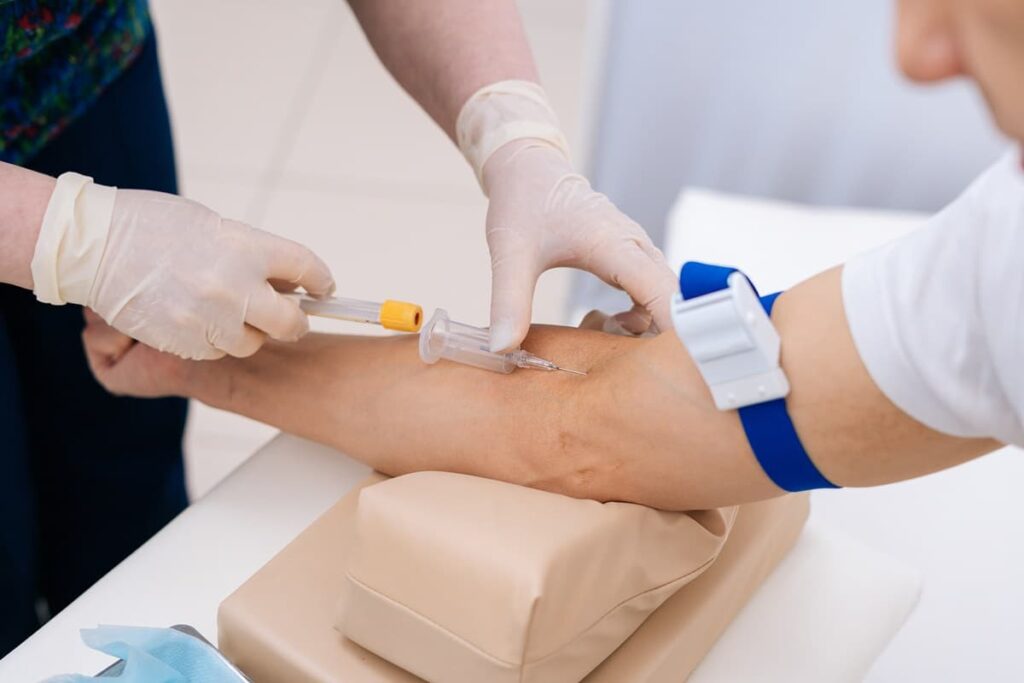MDxHealth Improves Prostate Cancer Biopsies
Table of contents
Table of contents

According to the Prostate Cancer Foundation, prostate cancer is the most common non-skin cancer in America, affecting 1 in 6 men. One new case occurs every 2.3 minutes and a man dies from prostate cancer every 16 minutes. It is estimated that there are more than 2.5 million American men currently living with prostate cancer.
One of the problems in treating prostate cancer is detecting it. In order to determine if you have prostate cancer, the doctor needs to take a biopsy. Incredibly, 1 in 4 biopsies will be a false-positive. This means the test says you don’t have cancer when in fact you do. Because of this ambiguity, more than 40% of patients will have a repeat biopsy. One company, MDXHealth, is looking to improve this accuracy while reducing the cost of additional biopsies and decreasing the time it takes to diagnose prostate cancer.
About MDxHealth
Founded in 2003, Belgium based MDxHealth is a molecular diagnostics company that develops and commercializes advanced epigenetic assays and service testing for cancer assessment and the personalized treatment of patients. The Company’s tests are based on its patented molecular technology, Methylation Specific PCR (MSP), which was originally developed at Johns Hopkins University and is covered by over 30 patents. MDxHealth has current out-licensing and partner deals with Pfizer, Johnson & Johnson, Teva Pharmaceuticals, Exact Sciences, and GlaxoSmithKline among others. MDxHealth currently trades on the pink sheet exchange (OTCMKTS:MXDHF) and on the NYSE Euronext exchange (EBR:MDXH) with a current market cap of $168 million.
Prostate Cancer Biopsies
A traditional cancer biopsy uses tissue from 12 needle cores that are taken from various areas in the prostate as seen below:
The process is reminiscent of the board game Battleship in that you may or may not actually hit the cancer depending on where the needles extract tissues. This is not surprising considering that the actual area sampled is less than 1% of the prostate itself. MDXHealth takes advantage of something they refer to as a “halo effect” or “field effect”. Using the tissues obtained from a traditional biopsy, their patented screening method can actually detect the cancer in a much wider area as seen below:
The process has proven to be a commercial success. MDxHealth’s ConfirmMDx® for Prostate Cancer test launched in mid-2012, with approximately 7,000 patients tested in 2013. Since launch, over 1,000 urologists have ordered the ConfirmMDx test, representing approximately 10% of U.S. practicing urologists. Sales of the product have translated into strong revenue growth as seen below:

MDxHealth’s total revenues increased by 28%, from $5.9 million in 2012 to $7.5 million in 2013 with half of 2013 revenues coming from sales of ConfirmMDx for Prostate Cancer. There is plenty of upside to be had as the Company estimates the total addressable market for this test to be around $1 billion. In addition to prostate cancer, MDxHealth has identified biomarkers for 11 different types of common cancers with bladder cancer tests being next in their pipeline.
Increased adoption of their commercialized prostate cancer test will translate directly into revenue growth, a metric that can easily be monitored by investors. With cash on hand of $24 million, no debt, and a cash burn rate of $1.2 million per month, MDxHealth can operate for the next 20 months without having to raise additional capital. Having partnered with some of the biggest players in the industry, MDxHealth has validated their technology not only through these partnerships but also through the successful commercialization of their first product.
While investors can buy shares in the pink sheet issue (OTCMKTS:MXDHF), another option would be to buy shares directly on the NYSE Euronext exchange (EBR:MDXH) and receive the additional benefit of currency diversification.
Sign up to our newsletter to get more of our great research delivered straight to your inbox!
Nanalyze Weekly includes useful insights written by our team of underpaid MBAs, research on new disruptive technology stocks flying under the radar, and summaries of our recent research. Always 100% free.
















